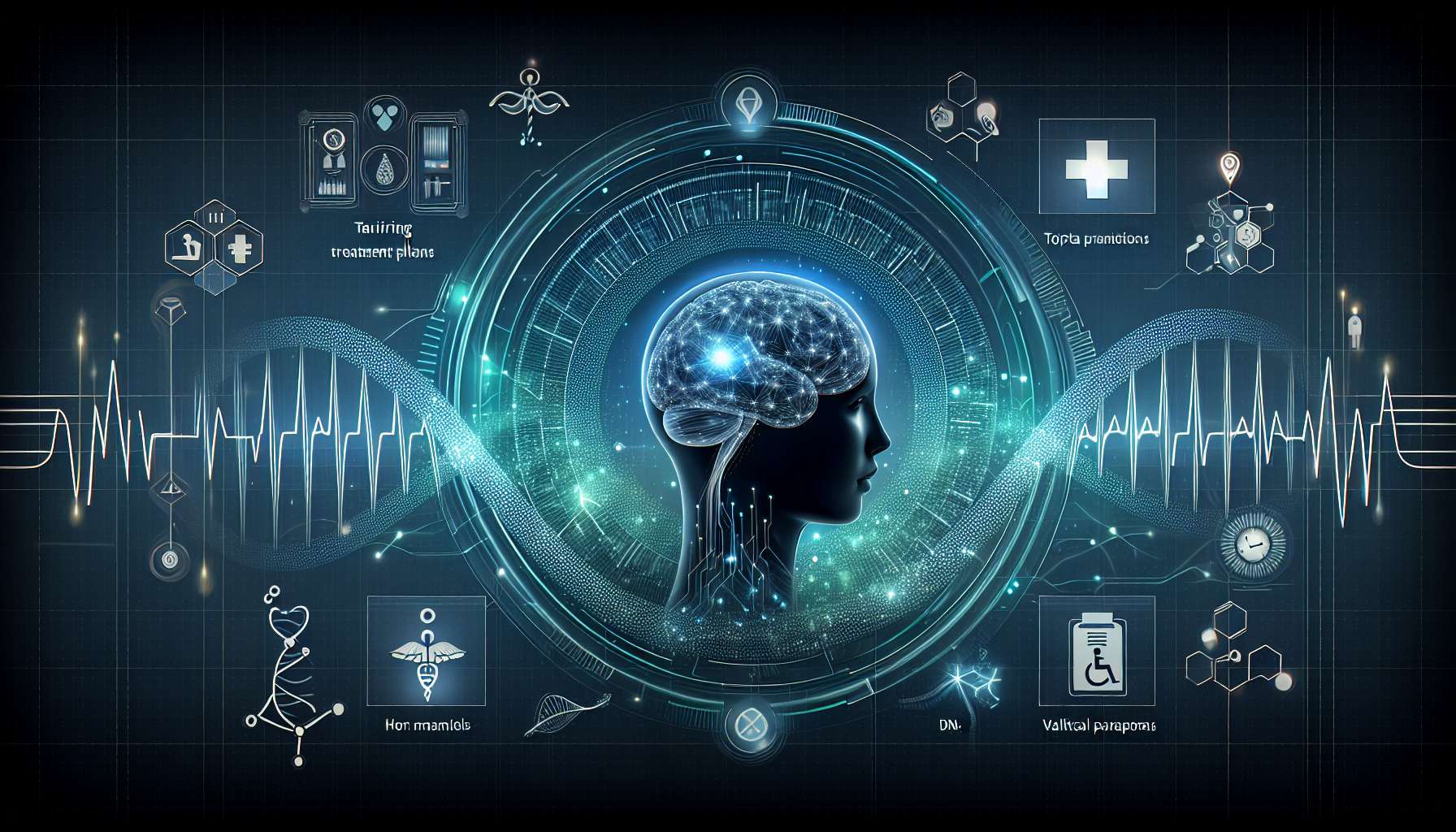AI and Personalized Healthcare: Tailoring Treatment Plans
In recent years, artificial intelligence (AI) has made significant advancements in various industries, and healthcare is no exception. One area where AI is revolutionizing the healthcare sector is in personalized treatment plans. By leveraging AI technologies, healthcare providers can now tailor treatment plans to individual patients, leading to more effective and efficient care.
The Power of AI in Personalized Healthcare
Traditionally, healthcare providers have followed a one-size-fits-all approach when it comes to treatment plans. However, every patient is unique, and their response to different treatments can vary. This is where AI comes in, offering the ability to analyze vast amounts of patient data and identify patterns that can help personalize treatment plans.
AI algorithms can process data from electronic health records, medical imaging, genetic information, and even wearable devices to gain insights into a patient’s health condition. By analyzing this data, AI can identify risk factors, predict disease progression, and recommend the most suitable treatment options for each individual.
Enhancing Diagnosis and Treatment
AI-powered systems can assist healthcare professionals in diagnosing diseases accurately and efficiently. By analyzing medical images, such as X-rays, MRIs, and CT scans, AI algorithms can detect abnormalities that may be missed by human eyes. This not only improves the accuracy of diagnoses but also speeds up the process, allowing patients to receive timely treatment.
Moreover, AI can help healthcare providers determine the most effective treatment plans for patients. By considering a patient’s medical history, genetic information, and lifestyle factors, AI algorithms can generate personalized recommendations. These recommendations can include specific medications, dosages, and even lifestyle modifications, ensuring that the treatment plan is tailored to the individual’s needs.
Improving Patient Outcomes and Cost-Efficiency
Personalized treatment plans have the potential to significantly improve patient outcomes. By considering individual characteristics and preferences, healthcare providers can optimize treatment strategies, leading to better patient experiences and higher success rates. Patients are more likely to adhere to treatment plans that are tailored to their needs, resulting in improved health outcomes.
Additionally, personalized healthcare can also contribute to cost-efficiency. By avoiding unnecessary treatments and focusing on the most effective interventions, healthcare providers can reduce healthcare costs. AI can help identify the most cost-effective treatment options, minimizing the financial burden on patients and healthcare systems.
Challenges and Future Directions
While AI holds immense promise in personalized healthcare, there are challenges that need to be addressed. Data privacy and security concerns, ethical considerations, and the need for regulatory frameworks are some of the key challenges that need to be overcome for widespread adoption of AI in healthcare.
Looking ahead, the future of personalized healthcare with AI looks promising. As AI technologies continue to advance, we can expect more sophisticated algorithms and improved integration with existing healthcare systems. This will further enhance the ability to tailor treatment plans and provide patients with the best possible care.
- AI is revolutionizing personalized healthcare by tailoring treatment plans to individual patients.
- AI algorithms analyze patient data to identify patterns and personalize treatment options.
- AI enhances diagnosis by detecting abnormalities in medical images.
- Personalized treatment plans improve patient outcomes and cost-efficiency.
- Challenges such as data privacy and ethical considerations need to be addressed.
- The future of personalized healthcare with AI looks promising.








